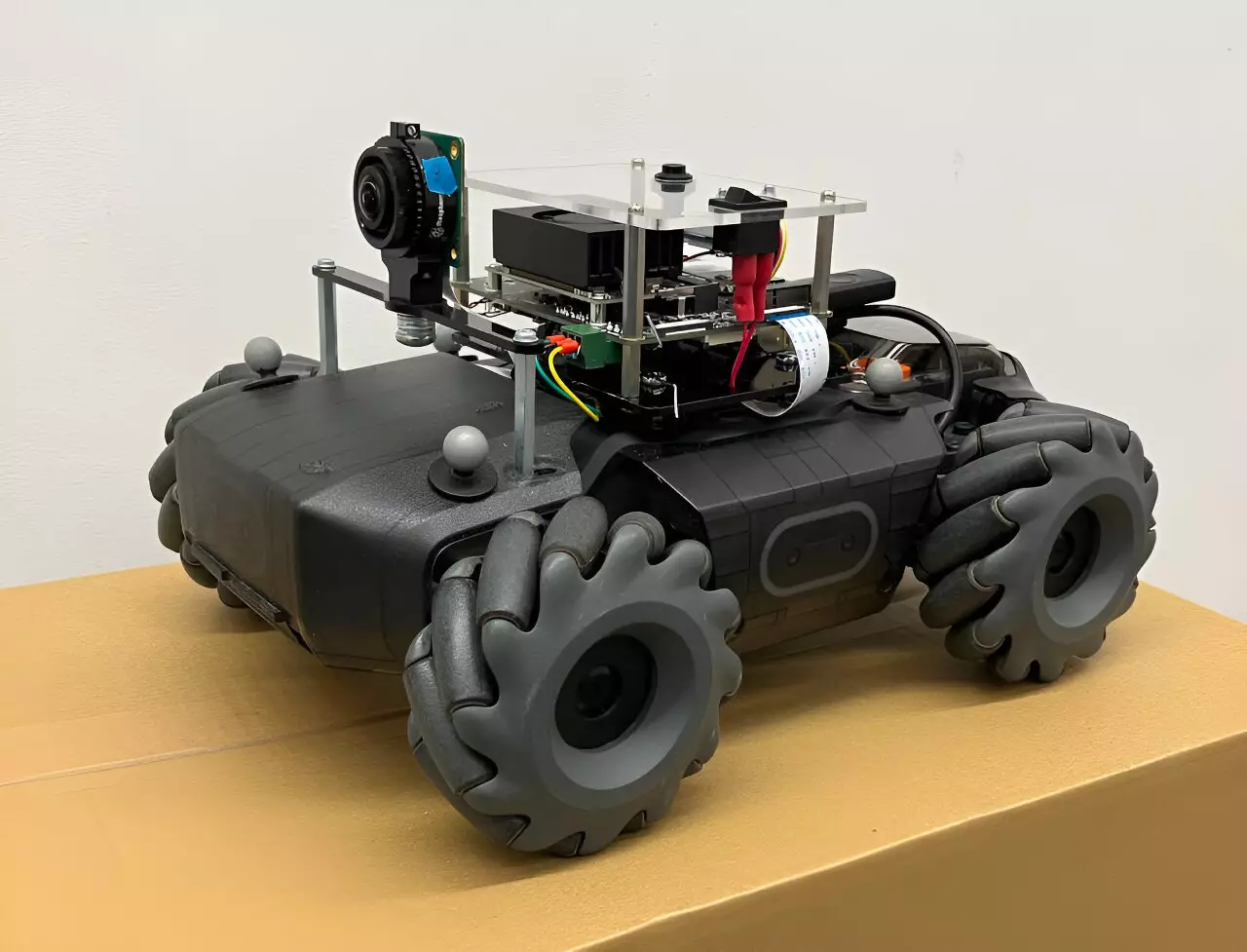Research in the field of robotics has greatly benefitted from the use of teams of robots rather than individual ones. The ability of robot teams to tackle more elaborate missions, such as covering long distances faster, visiting multiple sites simultaneously, and monitoring larger geographical areas, opens up endless possibilities for advancements in this field. A recent development in multi-robot research is the introduction of the Cambridge RoboMaster platform by researchers at the University of Cambridge.
The Cambridge RoboMaster platform features a fleet of customized RoboMaster wheeled robots along with software that allows for simulation and training of these robots on specific tasks. This platform aims to develop solutions for collective intelligence in multi-robot and multi-agent systems by incorporating methods from machine learning, planning, and control. The researchers behind the platform, led by Principal Investigator Amanda Prorok, are focused on applications such as automated transport, logistics, environmental monitoring, and search and rescue.
The Cambridge RoboMaster platform was meticulously designed to meet a series of requirements, including state-of-the-art computing power, speed, agility, and durability. By using customized versions of DJI RoboMaster S1 robots, the researchers were able to build upon a solid foundation to meet their specific needs. Over the course of three years, the platform was continuously improved with the addition of more capable computers, sensors, and control software, making it suitable for multiple projects and competitions.
One of the significant advantages of the Cambridge RoboMaster platform is the balance it strikes between robot size and capabilities. The customized DJI RoboMaster S1 robots overcome the limitations of both smaller robots with limited computing power and larger, more expensive robots that are unsuitable for indoor deployment. The platform offers full on-board autonomy, peer-to-peer communication, and the ability to run multi-agent reinforcement learning policies directly from the simulation framework.
The affordability of the Cambridge RoboMaster platform, priced at around $700, makes it accessible for researchers looking to conduct experiments in multi-robot research. The combination of cost-effectiveness, advanced capabilities, and versatility renders it an ideal tool for a wide range of research demonstrations and practical applications in multi-agent systems. The platform allows for testing algorithms for the planning of multi-robot missions applicable in real-world domains such as warehouse automation and logistics.
The Cambridge RoboMaster platform has proven to be highly versatile, reliable, and accessible for multi-robot research. With hardware, software, and simulation tools published on GitHub, research groups worldwide can soon begin testing algorithms for various multi-robot applications. The platform has exciting future plans including improvements in on-board sensing, decentralized communication, and control, as well as exploring its potential use as a bridge for deploying research to drones. By continually enhancing and expanding the platform’s capabilities, the aim is to push the boundaries of multi-robot and multi-agent systems research.


Leave a Reply